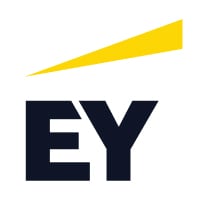

General counsel | Pleo Technologies




Tine Kosmider Boye
General counsel | Pleo Technologies
Bio
Tine Kosmider Boye is an experienced legal executive with extensive experience in corporate law, M&A, capital markets law, and compliance. In 2025, she joined Pleo as general counsel, where she advises executive leadership and the board on strategic legal matters and supports the company’s continued growth and international expansion.
Prior to Pleo, Tine served as group general counsel at Netcompany (2017–2025), where she built and led a 24-person legal team, was responsible for the company’s IPO, and played a key role in multiple international acquisitions. She was instrumental in establishing Netcompany’s compliance, ESG reporting, and governance structures and served on the boards of all group subsidiaries.
Earlier in her career, Tine headed Corporate and M&A at Nets, managing deals worth over DKK23bn and contributing significantly to its IPO and regulatory framework. Her foundational legal training was at LETT Law Firm (now DLA Piper).
Tine holds a law degree from Aarhus University, the Danish Bar exam, and a CBS Board Leadership certification. She is known for her strategic mindset, commercial pragmatism, and ability to lead through complex legal landscapes.
How do you approach managing legal aspects during periods of instability or crises, and how does your legal strategy align with the broader business strategy to ensure the organisation’s resilience?
When managing legal aspects during periods of instability or crises, it’s essential to approach the situation with a proactive, strategic mindset.
It is therefore important to assess and prioritise legal risks as the legal landscape can rapidly change. my first step is to assess potential legal risks arising from the situation – whether related to regulatory changes, contractual obligations, disputes, or employment issues and prioritise those risks based on their potential impact on the organisation.
It is important that the legal team must be agile, able to quickly address new legal issues as they arise. This also involves communicating and coordinating effectively with other departments, such as compliance, risk management, and finance, to ensure we have a comprehensive understanding of all legal dimensions. Further, it’s crucial to maintain open communication with the business leadership and we aim to be not only reactive but also proactive, offering legal solutions to support the business’s ongoing efforts. I also engage in scenario planning and ensure that the organisation has an effective crisis management plan in place.
Additionally, ensuring the resilience of the business involves not just managing immediate legal risks, but also preparing the company for long-term stability. This means investing in compliance and governance frameworks that can withstand future challenges, ensuring contracts and business practices are flexible, and safeguarding against risks that could undermine the company’s reputation and financial health. Ultimately, my approach is to balance risk management with the need for the organisation to continue forward and achieve its broader strategic goals.
What are the major cases or transactions you have been involved in recently?
In recent times, I have been involved in several significant cases and transactions, which include:
Implementation of DORA (Digital Operational Resilience Act): As part of the company’s ongoing efforts to comply with new EU regulations, I led the implementation of the Digital Operational Resilience Act (DORA). This involved reviewing and adapting our internal policies, procedures, and contracts to ensure alignment with the regulation’s requirements. I worked with various departments to ensure that the organisation’s IT systems, third-party service providers, and operational processes met the necessary standards for operational resilience and risk management in the digital space.
CSRD (Corporate Sustainability Reporting Directive) reporting: The legal team played a vital role in ensuring compliance with the new EU sustainability reporting standards and preparing the CSRD reporting. This required a comprehensive review of the company’s existing practices to ensure accurate and transparent disclosure of environmental, social, and governance (ESG) factors. The legal team’s proactive involvement was crucial in ensuring that the company not only complied with CSRD but also leveraged this as an opportunity to enhance its corporate reputation in sustainability.
Negotiating and drafting large-scale contracts, particularly in the context of strategic partnerships such as for instance FORCA. These negotiations involved high-value agreements, requiring a delicate balance of legal, financial, and business considerations.
Each of these cases and transactions presented unique challenges, but they also provided opportunities to apply strategic legal thinking to complex issues, while ensuring that the company’s business interests were safeguarded and aligned with regulatory requirements.
What emerging technologies do you see as having the most significant impact on the legal profession in the near future, and how do you stay updated on these developments?
This is a matter, which is very interesting and that I am very passionate about. Emerging technologies are rapidly transforming the legal profession, and I believe several key advancements will have a significant impact soon:
Artificial Intelligence (AI) and Machine Learning: AI has already begun to play a crucial role in streamlining legal research, document review, contract analysis, and predictive analytics. AI tools can now analyse vast amounts of legal data and case law, allowing legal professionals to work more efficiently and make better-informed decisions. Soon, I expect AI to be even more integrated into tasks like legal drafting, compliance monitoring, and even litigation strategy prediction. It will reduce the time spent on repetitive tasks, enabling legal teams to focus on higher-value, strategic work.
Legal Tech Platforms and Automation Tools: Legal tech tools are increasingly used to automate routine tasks, from document generation and contract management to compliance monitoring. and dispute resolution.
Natural Language Processing (NLP): NLP is advancing to the point where it can better understand and process human language, making it useful in drafting, reviewing, and interpreting legal documents. NLP will be used in contract analysis and due diligence processes, enabling faster and more accurate identification of potential risks or opportunities in legal agreements.
To stay updated on these developments, I attend legal tech conferences and webinars, where I can learn about the latest trends in legal tech. Further, I read legal and tech journals.
By staying proactive in exploring these technologies, I ensure that I’m well-positioned to advise on their impact and help integrate them into our legal strategies effectively.
How do you prioritise diversity and inclusion within your legal department, and what initiatives have you implemented to foster a more inclusive and equitable work environment?
Ultimately, I believe that inclusion is the foundation for success. By fostering an environment where everyone feels that they belong, we can build a stronger, more collaborative, and high-performing team that drives better results for the organisation.
To build and sustain a truly inclusive and equitable workplace, I have implemented a range of initiatives:
Diverse Recruitment Strategy: We’ve made conscious efforts to ensure our recruitment practices attract diverse talent.
Inclusive Work Culture: Our team has cultivated an environment where all voices are heard and valued.
Leadership Accountability: I believe that creating an inclusive environment starts with leadership, so I make it a priority to lead by example. I regularly check in with team members and ensure that all feel included.
Professional Development and Advancement: I’m committed to ensuring that all team members, particularly those from underrepresented backgrounds, have equal opportunities to advance. I speak with about career development, and opportunities for mentorship to empower everyone to reach their full potential within the department.
Employee Engagement and Well-being: To ensure an inclusive workplace, I focus on employee well-being. This includes flexible working arrangements, creating a safe space for discussing personal challenges.
I aim to create an environment where everyone feels supported, valued, and empowered to contribute their best. Our commitment to these values strengthens the cohesion of our team, enhances creativity, and drives the success of the department.
Group general counsel | Netcompany